Donald Trump
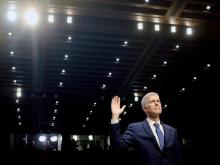
In Trump’s first nominee, Judge Neil Gorsuch, abortion foes were convinced they had the jurist who would fulfill Trump’s campaign promise to appoint justices who would deliver the reversal they have worked decades to achieve. But now, after last week’s hearings before the Senate Judiciary Committee, some are voicing concern that Gorsuch might not be such a reliable anti-Roe vote after all.

I began writing letters. One hand-written letter a week, delivered to the White House door, so that he’ll know we are here, so that he’ll know our story exists and that we are not to be ignored. I’m not saying that as a liberal I feel ignored; I’m saying that I don’t want to be ignored as a human being, as a citizen, as a woman, as a mother, as a Native American, as a Christian.

Many people in our nation, and indeed around the world, are scared by the things happening in Washington. Those most affected by the actions of this administration are especially afraid. But today, we announce a plan of action in response.

Shortly after the election, President Donald Trump’s adviser Steve Bannon, in the context of a conversation about liberal politicians and the media’s failure to perceive the new political realities, told The Hollywood Reporter that “darkness is good.” He went on to say, “Dick Cheney. Darth Vader. Satan. That’s power. It only helps us when [liberals and the media] get it wrong. When they're blind to who we are and what we're doing."
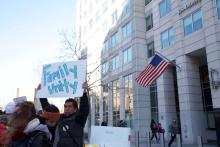
An immigration judge once told me the story about an Albanian family: On their way to their final asylum hearing, they were broadsided by a drunk driver and ended up in the hospital. Because they missed their court date, they automatically received a deportation order. “Almost 10 years and almost a million dollars to remove the order,” said the judge. “It’s like pulling a wisdom tooth continuously for years."
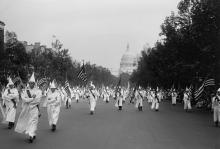
The only answer to the racial divide among Christians — evangelicals in particular — is to go much deeper into what racial equity and healing will require. America’s Original Sin was written for such a time as this. It is a book written to and for white Christians and white churches — to help lead them to new conversations with black and brown Christians and their churches. It could be that studying racism in congregation after congregation, and especially between congregations across racial lines, could be a fundamental building block for genuine racial reconciliation in America.

In one weekend, the swastika appeared in public places in three U.S. cities — Houston, Chicago, and New York. The sight was so offensive, average New Yorkers pulled out hand sanitizer and tissues to wipe the graffiti from the walls of the subway where it had been scrawled.
“Within about two minutes, all the Nazi symbolism was gone,” one subway rider who was there said. He added, “Everyone kind of just did their jobs of being decent human beings.”
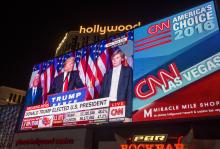
As a teacher of environmental education, I need to stay informed. But as a mother and writer, I need to stay grounded so I can advocate for justice for my children over the long haul. If my father could give up talking about George W. Bush for 40 days, could I take a Trump Sabbath and fast from the headlines for 24 hours?

This anti-Asian xenophobia is both individual and institutional in that it shapes our governmental policies. Although Japanese Americans as whole were unjustly incarcerated in World War II, an act deemed unconstitutional, Trump and his advisors employ historic internment as a rationale for detaining current minority groups.

We sit here today, as the wealthy and the powerful. But let us not forget that those who follow Christ will more often find themselves not with comfortable majorities, but with miserable minorities. Today our prayers must begin with repentance. Individually, we must seek forgiveness for the exile of love from our hearts. And corporately as a people, we must turn in repentance from the sin that scarred our national soul.

When did we all become activists?
Was it when social media made it accessible for us to change our profile pictures?
When we realized we each had a platform to make our voices heard?
Was it when pictures of refugee babies drowned ashore shook our moral core?
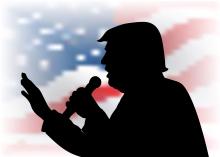
Since becoming president, Trump — both directly and through his top aides — has made a number of demonstrably false statements. Rather than backing away from these statements when confronted with the truth, he and his team have doubled and tripled down on claims that defy reason, logic, evidence, and just common sense.

For the last few years Christians have been singing worship songs that include lyrics like “ keep my eyes above the waves, when oceans rise …” and yet have rejected refugees who’ve seen loved ones die beneath waves, who themselves have literally struggled to keep from drowning in oceans. Those American Christians — particularly white evangelicals — continue to sing the words: “Spirit lead me where my trust is without borders …” but fail to realize the shameful irony that they’re largely responsible for refusing shelter and opportunity to some of the world’s most helpless and oppressed people.

Many of us are scandalized — amazed — by her statement, but no one should be surprised. Trump helped usher in a “post-truth” world where “alternative facts” thrive. There is much to criticize in Conway’s use of the term, but we should also be careful about our response to the Trump administration and its general posture toward telling the truth.
Mimetic theorist René Girard reminds us that “scandal” originally meant “stumbling block.” Whether done intentionally or not, scandals are stumbling blocks placed before us so that we trip. Scandals are usually bright, shiny objects that capture our attention. The more we go after the scandal, the more we stumble over it.

Today, President Donald Trump signed an executive action greenlighting the Dakota Access Pipeline, which had been halted to seek alternative routes. The original route, under Lake Oahe, would have threatened the Standing Rock Sioux’s drinking water and sacred lands.

As I listened to President Donald Trump’s inaugural address on Friday, I couldn’t help but be reminded me of a book titled The Anti-Intellectual Presidency by Elvin T Lim.

I believe at the heart of this election campaign was the deeply biblical, theological, and spiritual issue of how we treat “the other.” Many of the white people who voted for Trump, especially many of the white Christians who voted in majorities for him, are quick to say they didn’t vote for him because of his use of racial bigotry and exploitation of xenophobic attitudes toward immigrants. But many people of color, who voted in overwhelming majorities against Trump have responded, “OK, you say you didn’t like his racism, but it wasn’t a deal breaker; it wasn’t a disqualifier for your vote.” The result of this highly and overtly racialized election and Trump’s early appointees are what make many people of color fearful. It’s what is already happening to them — and their children — on playgrounds, schools, trains, and planes, and just on the street on their way to work or class or church. The personal stories told to me by black church leaders of being verbally abused or threatened have been very disconcerting. A man who clearly capitalized on our divisions now claims he will be a president for all Americans. So that is a commitment he should now be held accountable to — by all of us.
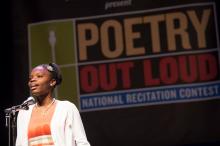
The Corporation for Public Broadcasting provides nationwide access to public radio, television, and other non-commercial telecommunications services. The National Endowment for the Arts provides Americans with funding needed to engage with the arts and facilitate arts projects. The National Endowment for the Humanities provides funding to museums, libraries, and institutions of higher learning to promote study of the humanities.

Of course, God’s values weren’t popular with many people then. Or now. So many people today say that love and compassion and equality should be excluded from most areas of our lives. They advocate far different values: privilege, exclusion, discrimination, wealth, power, violence, domination.
Jesus challenged all of it. And if we’re to follow his way, we must do the same.

Republican South Carolina Gov. Nikki Haley will be a rare woman on Donald Trump’s Cabinet-level team, and one of the few persons of color.
Knowing little about her foreign policy positions, given that she has little to no international experience, what should we expect from Haley once she is confirmed to be ambassador to the United Nations?